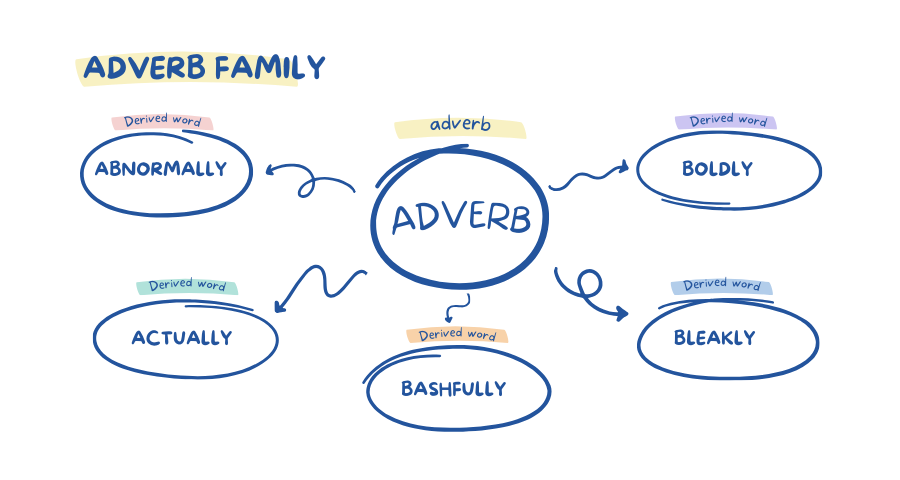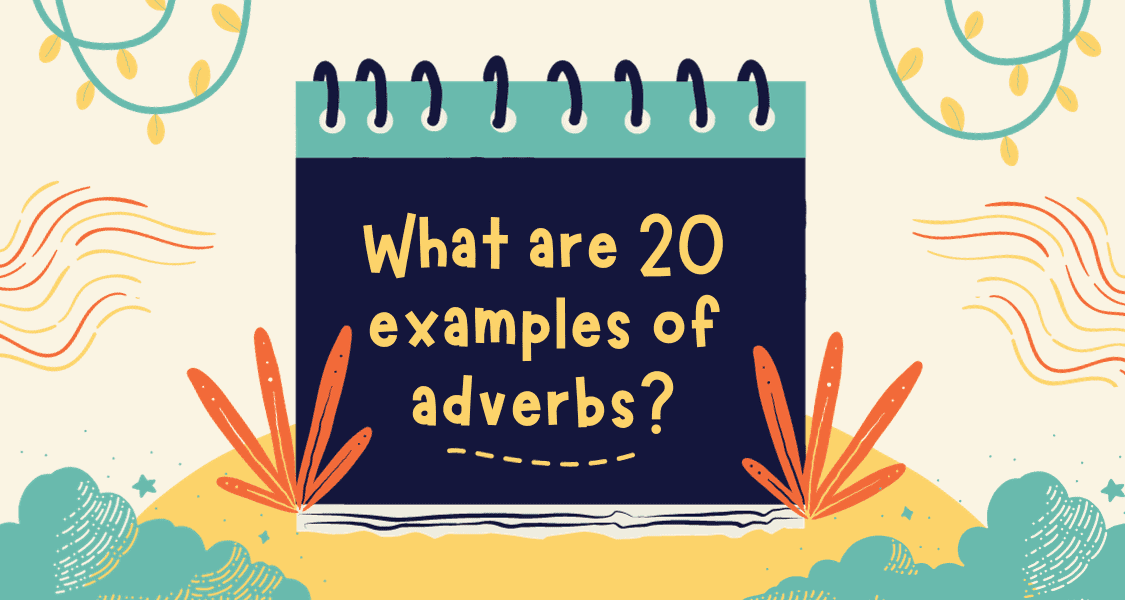Adverbs are an essential part of the English language. Adverbs modify verbs, adjectives, and other adverbs to add depth and detail to sentences. In this article, we will explore the world of adverbs and provide examples to improve understanding.
20 Examples of adverbs in sentence
Adverbs are versatile words that provide additional information about verbs, adjectives, or other adverbs, enhancing the depth and context of a sentence. They can describe how an action is performed, when it happens, to what extent, or even express the speaker’s attitude.
The examples of adverbs are given below,
- Abnormally: She laughed abnormally loudly.
- Absentmindedly: He absentmindedly left his keys at home.
- Accidentally: She accidentally spilled her coffee.
- Actually: He’s actually a talented musician.
- Adventurously: They explored the jungle adventurously.
- Afterward: We’ll have dessert afterward.
- Almost: She’s almost finished with her book.
- Always: He always arrives early.
- Annually: The event takes place annually.
- Anxiously: She waited anxiously for the test results.
- Arrogantly: He spoke arrogantly during the meeting.
- Awkwardly: He danced awkwardly at the party.
- Bashfully: She smiled bashfully when complimented.
- Beautifully: The flowers bloomed beautifully.
- Bitterly: He complained bitterly about the cold.
- Bleakly: The landscape looked bleakly desolate.
- Blindly: He reached out blindly in the dark.
- Blissfully: They lived blissfully by the beach.
- Boastfully: He spoke boastfully of his achievements.
- Boldly: She boldly faced her fears.

How Adverbs Modify Verbs
Adverbs can modify verbs in various ways. They can describe how an action is performed, providing insights into the manner in which it happens. For instance:
- She sang beautifully.
- He ran briskly.
How Adverbs Modify Adjectives
Adverbs can also modify adjectives, enhancing their meaning. For example:
- The movie was remarkably good.
- His speech was extremely impressive.
How Adverbs Modify Other Adverbs
Adverbs can modify other adverbs to indicate the degree or intensity of an action. Consider these examples:
- She spoke very softly.
- He ate quite quickly.
Adverbs at the Beginning of a Sentence
While adverbs often appear in the middle of sentences, they can also be used at the beginning for emphasis or to set the tone:
- Clearly, he didn’t understand.
- Sincerely, I apologize for my mistake.
Intensifying and Weakening Verbs
Adverbs can intensify or weaken the meaning of verbs, affecting the overall tone of a sentence:
- She smiled blissfully.
- He cried bitterly.
Expressing Time
Adverbs can express time, indicating when an action takes place:
- They will arrive tomorrow.
- She called yesterday.
Expressing Frequency
Adverbs can convey how often an action occurs:
- He always arrives on time.
- She rarely makes mistakes.
Expressing Manner
Adverbs can describe the manner in which an action is performed:
- He completed the task carefully.
- She painted the picture beautifully.
Describing Emotions
Adverbs can even be used to describe emotions:
- He laughed happily.
- She spoke anxiously.
Make sure to practice using adverbs to enhance your communication skills. This will help you convey your message precisely and vividly, and over time, you will become an expert at using adverbs effectively.

